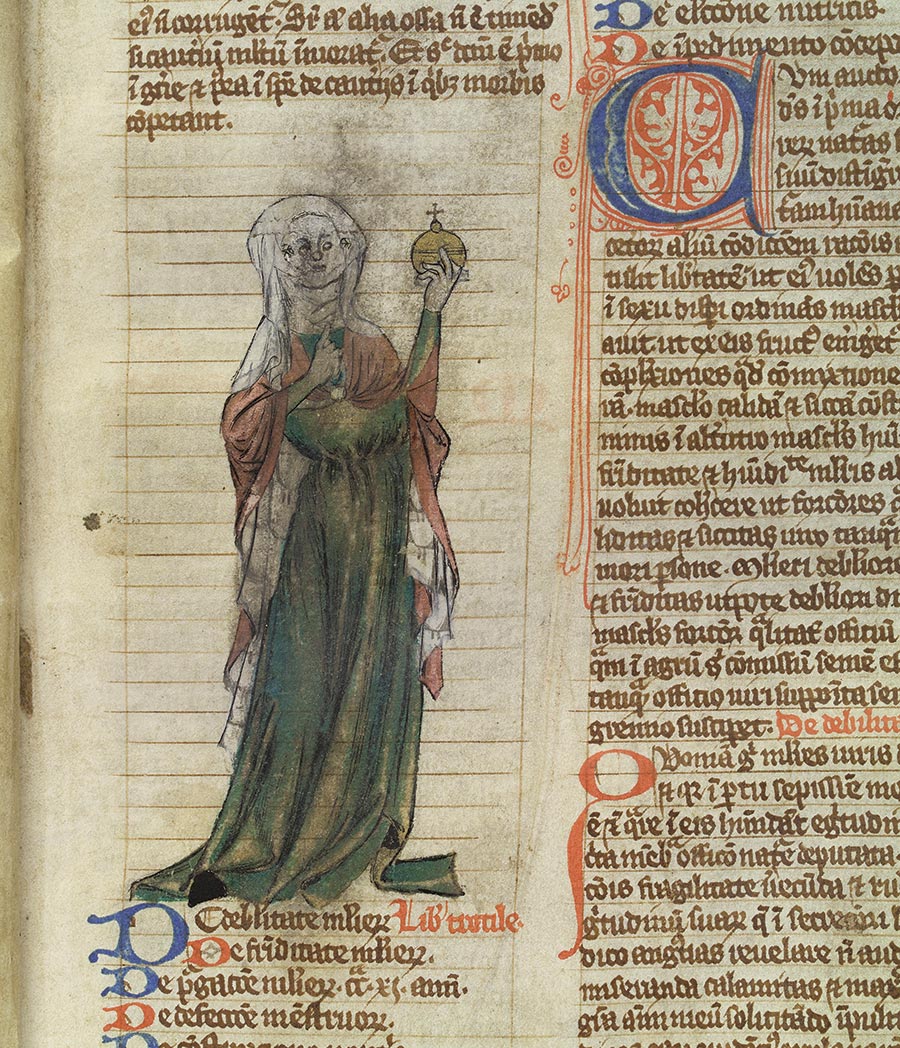The ‘Grandmother of Gynaecology’ Trota of Salerno studied and practised at the Medical School of Salerno during the 1100s…
Italia! Women #2: Trota of Salerno (12th Century)
We know very little of the life of Trota except that she worked at the Medical School of Salerno during the 12th century. There are no biographical records; we don’t even have her dates.
All we have is her academic work, and some of this only in the third person. Even this 14th-century image of a ‘female healer’ is probably not a likeness.
So who was she? She was probably the leading light of a group of Salernitan women who sought to describe women’s matters to men in order to better inform their teaching; and as such her legacy would have owed much to an older, oral tradition.
As a medic, she specialised in subjects like menstruation, pregnancy and childbirth, and her fame spread across Europe within the course of her lifetime – albeit not far beyond it.
The problem, as you may have surmised, is that the authorships of women were often attributed to men. And this wasn’t just plagiarism; it was also later editors making assumptions.
Assumptions like, “How could a woman know more about procreation than a man? Surely some mistake. I’d better change all those she’s to he’s.”
Some bright spark even managed to change her name to Trottus.
Soon she became no more than the personification of a theme. In fact, until very recently we didn’t even know for sure that she actually existed.
This was right up until 1985, when a text clearly attributable to her was discovered in Madrid.
This text, Practica secundum Trotam (Practice According to Trota), overlapped significantly with De curis mulierum (On Treatments for Women), which describes her practices and was incorporated with two other works, by other, unknown (so probably female), authors into the Trotula, which itself became the go-to text on gynaecology for centuries to come.
Some of her ideas were quite radical – such as her contention that some failures in conception could be attributed to men.
The concept that women might just be considered authorities on subjects pertaining to procreation was also obviously way ahead of its time.
Discover more Italian Culture in our archive
Featured image from Wellcome Images

